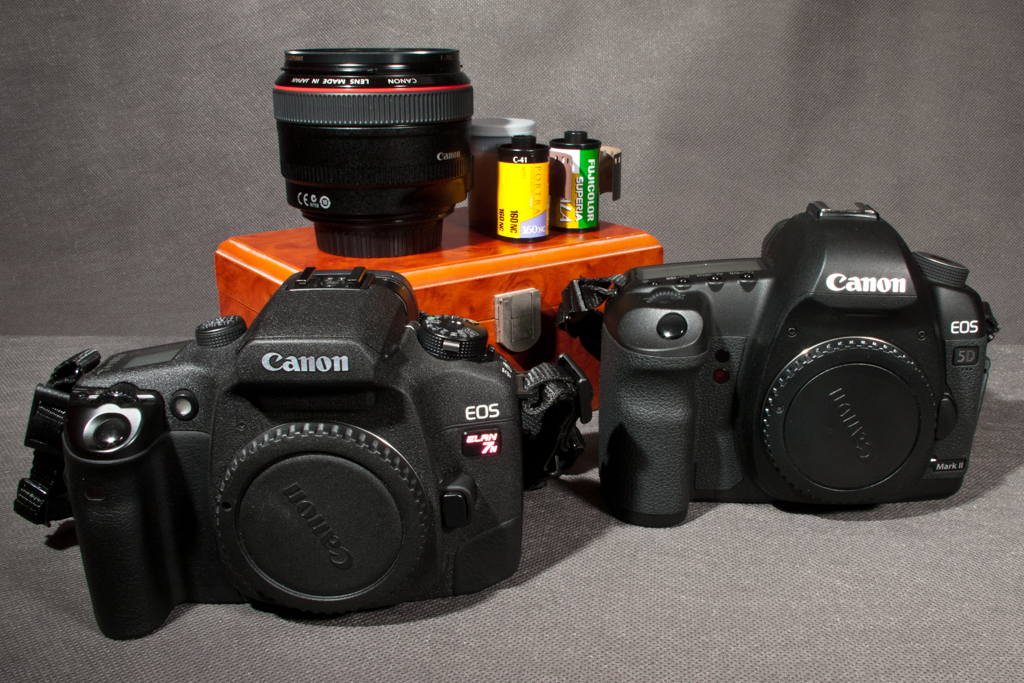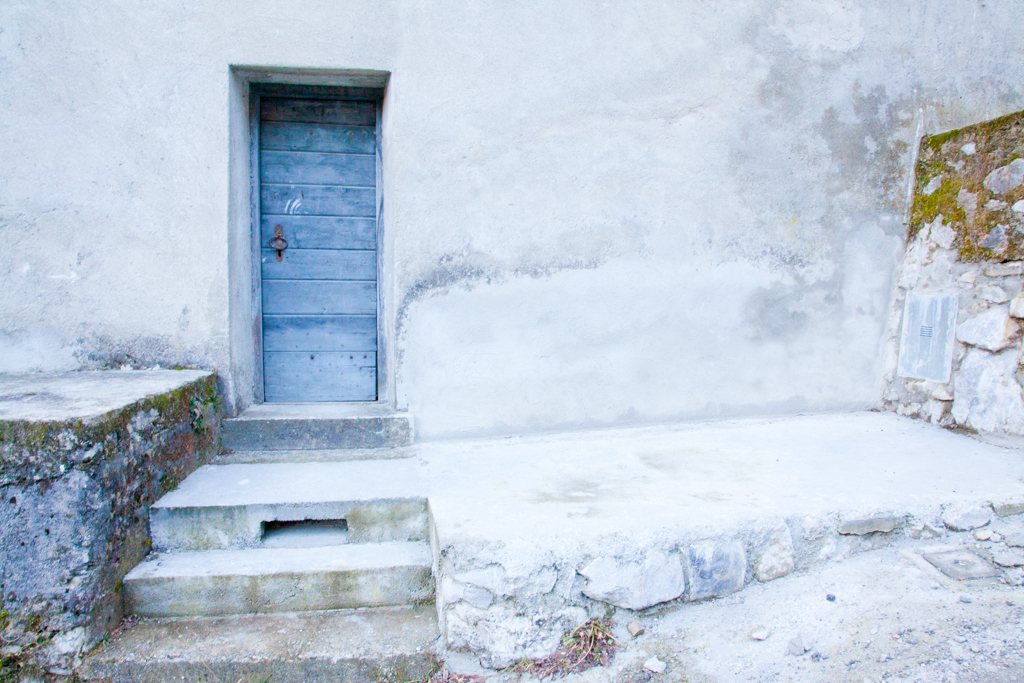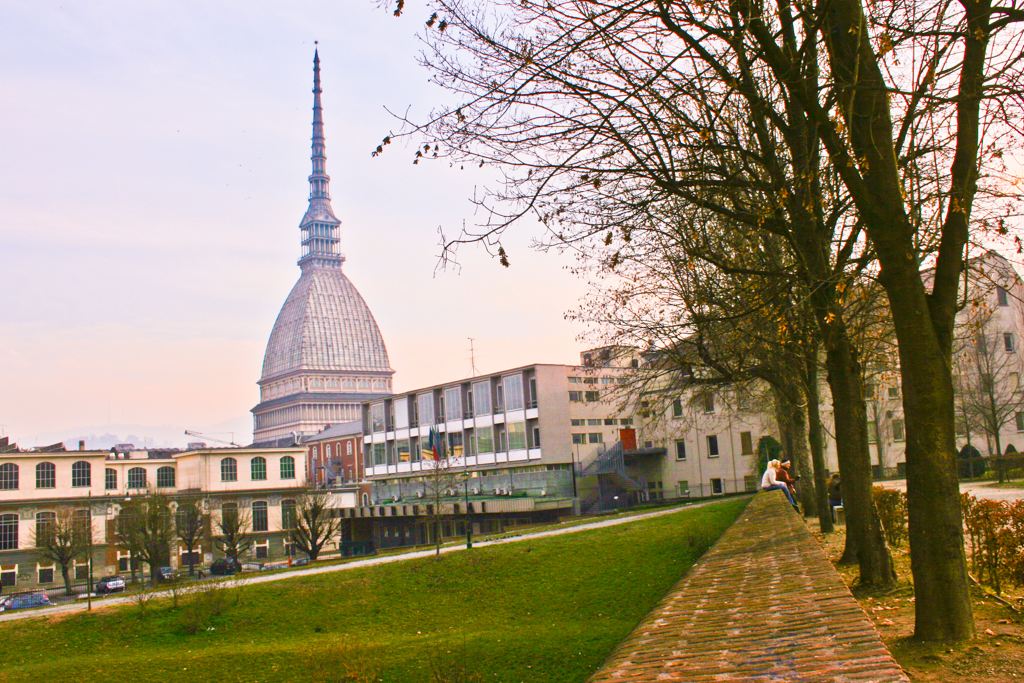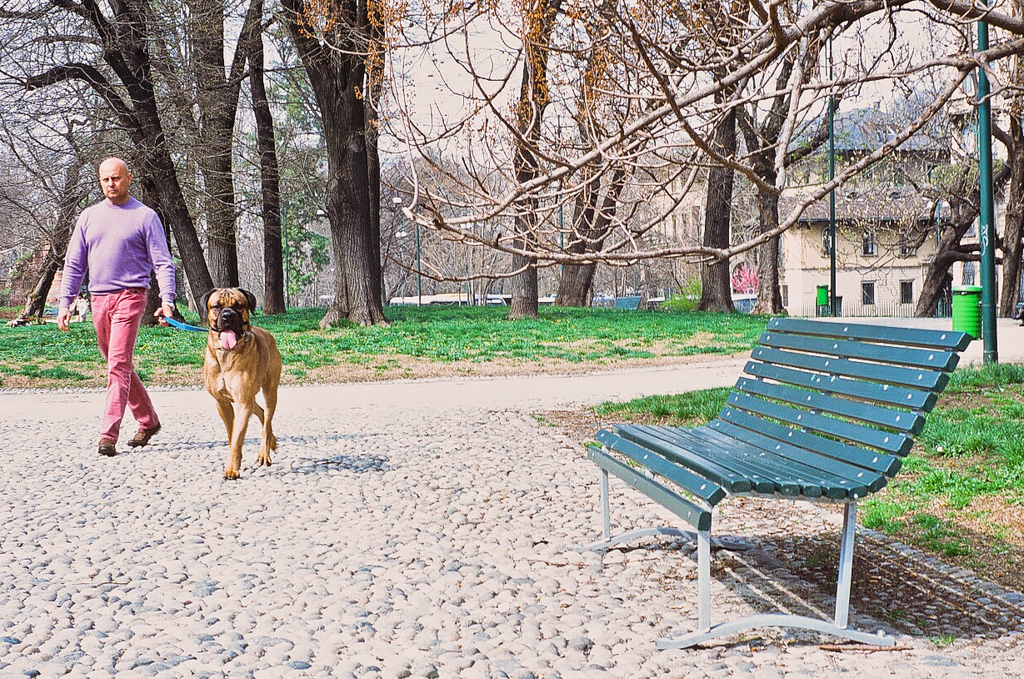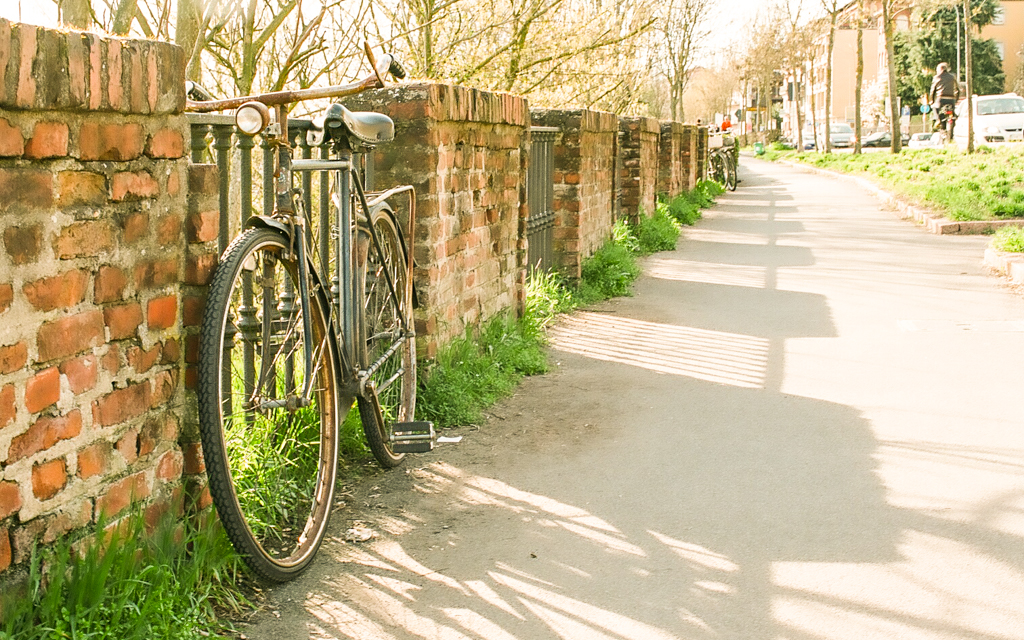Is Film Better?
writer: russell j.t. dyer; posted: apr 2010; revised: mar 2018
Canon Elan 7n (33V)
Canon 5D Mark II cameras
Canon EF 50mm f/1.2 L lens
As I’ve been using and experimenting more with film cameras in the past year, there is one main question, or rather one set of questions, that I’m considering in recent weeks in relation to film: If I want both printed images and digitalized images, is it better to use a film camera or a digital one? I have equalized many factors among my equipment by purchasing a good film camera which uses the same lenses as my best digital camera and was made with fairly current technology (e.g., through-the-lens light meters). So, which camera of mine will produce the better results: the analog or the digital one? Both are excellent cameras. I use the same lenses for both cameras and both receive images from the lenses the same — the digital camera has a full 35mm size sensor. So, what’ the point of using one verses the other?
Consider this experiment: I take a photograph of something with my Canon 5D Mark II camera, using one of my L-series prime lens on a tripod and properly exposed. Then I put my Canon Elan 7n (33V) Camera on the tripod in the same position, with the same lens and same settings as I had on the 5D MII — using professional film (e.g., Kodak Portra 160 NC). I then take my memory card and film to a high quality lab. I have them print the digital image for me using the best material and methods. I also have the lab develop the film, scan the negative to a CD at the highest resolution possible, and also print the image from the negative using the best paper and all. I then go home with my two prints and two digital images.
Film & Digital Camera Images
If I were to compare the digital images of both cameras would they be identical? If I were to compare the printed images of both cameras, would they be identical? If not, would the digital camera produce the better digital image and the film camera the better printed image? That’s what one might think: digital begets the best digital and analog cameras begets the best analog images. However, the Canon 5D Mark II is pretty impressive. Would it beat the older Canon EOS 33v on both counts? If I used a Canon EOS 1v HS camera, would that help to equal the results? If I set up my own dark room, could I get the film results to surpass the print from the digital camera?
To me, comparing the results from film to digital cameras has been like comparing oil paintings to colored pencil drawings. They’re different mediums with different results. However, as I’m working through my deficiencies with film, I’m getting results close to that of my digital cameras, but with an artistic flare to them. As I’ve been learning how to use Adobe PhotoShop and related components over the past year, I know how to get an artistic flare from digital camera images. One could say that I am abusing my film images when I get them into Adobe, and that I’m creating artificial images when I tweak my digital camera images to look like film. I would first argue that that’s art. More practically, though, what I am doing in Adobe is similar to what Kodak and Fuji are doing with chemicals at their factories when they make the films I use. Kodak makes two professional films that I like: Kodak Portra 160 VC and Kodak Portra 160 NC. The VC stands for vibrant colors and the NC stands for natural colors. This is like using the Picture Styles in my Canon EOS digital cameras or playing with the Saturation and Vibrance settings in Adobe PhotoShop. The only other effect that film can have directly on the results are related to grain and clarity. Better film and better processing of film can reduce grain. I can add graininess to digital camera images with the latest version of Adobe. The point or question is, do I get better results from film? What are the differences?
Look at these photographs above. Two of them were taken with a Canon digital camera and two with a Canon film camera. All four have been enhanced in Adobe. If you click on each of them, you can see large copies of each. Can you easily see which were taken with a film camera and which with a digital camera? I concede that since I saturated the colors for all of the photographs, they all have an aged look you might expect from film. However, I have seen photographs taken by photographers who are much better at film photography than am I. Their photographs are not overly saturated with colors and have a greater clarity than I have ever achieved with my best digital cameras and lenses. So, even depending on one’s artistic preferences, I’m not sure what can be achieved in film that cannot be achieved in digital and vice versa.
Many have argued that we are spoiled by the immediate feedback of digital cameras and that the limitations of a film camera make the photographer better. It’s true that the results from taking photos with a film camera are delayed and one is not given immediate feedback from an LCD panel on the camera. The pro-film advocates would say that that forces one to think more when snapping pictures. Others could easily call delayed results and no immediate feedback a negative feature. If I agree with the former group, with my digital camera I could just disable the LCD screen and not look at the images for a few days to achieve the same effect. Film costs me more money in a sense because of the cost of developing the film. Howver, film cameras are now cheaper than the equivalent digital cameras. I haven’t done the math, but it may be that a professional digital camera will cost more per photo, unless one takes a tremendous number of photographs. So, given that film costs more to process and I already have good digital equipment, is film not a good choice for me? I’m not sure.
Once I have my routine and the components at their best, will I get better printed and digitalized images from film? A decade ago when digital cameras produced poor digital images, that was an easy answer of Yes — at least for the printed image. Now the answer may be, No and that the best I can hope to do is to get almost equal results from both. A consolation would be if one camera gave me oil paintings and the other colored pencil drawings. I could then tell myself that they’re two different things, two different forms of expression and art. However, I’m not sure that there are different results to be had. I thought there were, but as my abilities in film and Adobe are improving, I’m no longer sure. This is something about which I’m musing lately.
